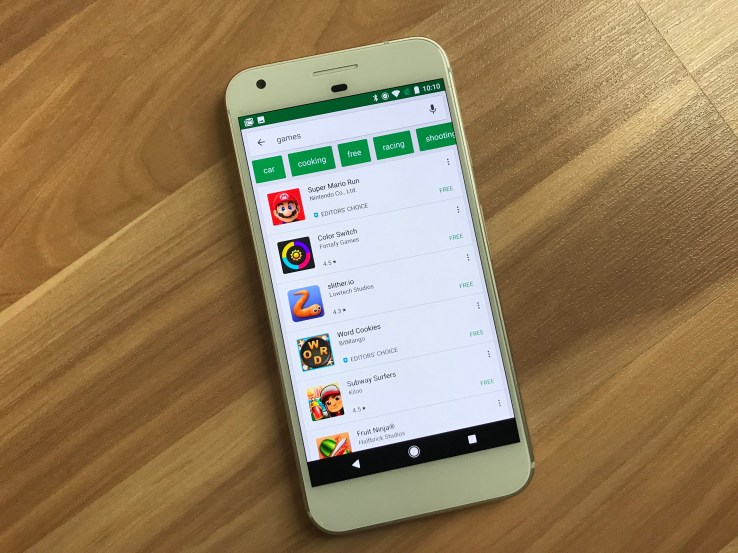Google Play will now downrank poorly performing apps

Google today announced it’s rolling out a change to its Play Store so that better-performing apps – meaning those that experience fewer crashes and those that don’t drain your smartphone battery – will be ranked higher than apps with bugs and other performance issues.
The goal with this new ranking algorithm is to ensure that the best apps are being promoted, which in turn leads to increased app usage and engagement, the company says.
The impetus for this change came after Google realized that around half of the 1-star reviews on the Google Play Store were about app stability problems.
Apps that don’t work well frustrate users, who often turn to the reviews to leave a complaint. Over time, a number of bad reviews and low star ratings can impact the app’s place in the charts and search results. But if an app is popular enough, a large number of installs can still, to some extent, override its negative reviews and push the app back up into a higher position than it rightly deserves.
This ranking algorithm update will now force developers with buggy apps to address their issues, or be penalized as a result.
Google says it’s looking at a variety of “quality signals” related to an app’s performance to determine its new ranking. For example, it will take into consideration things like app crashes, battery usage, and how many uninstalls the app has, among other things. The company declined to share specifics on this signals – like how many crashes or uninstalls, for example, could cause an app to be downranked.
The company started rolling out the change this week to a very small subset of users, but it’s already seeing some notable results. Following the update, Google found that people who installed higher quality apps would then go on to use those apps more, and uninstall them less.
Of course, it’s fairly obvious that there would be a connection between app quality and usage – things that ultimately impact a developer’s ability to retain users and generate revenue. A good developer is likely concerned about bugs, crashes and performance issues anyway. But this change will further institutionalize these values across the Play Store – there’s no skirting around building good apps if you want them to be found.
The company says the Play Store now has over a million apps available for download, which means there’s a large number of apps that aren’t going to be easily discoverable through the store’s charts and featured selections – they rely on user searches to be found. And if their app isn’t working that well, it could become even more invisible than it was before.
The updated algorithm will continue to roll out over the next week or so across the Google Play Store worldwide, the company says. It will affect both the charts and the search results.